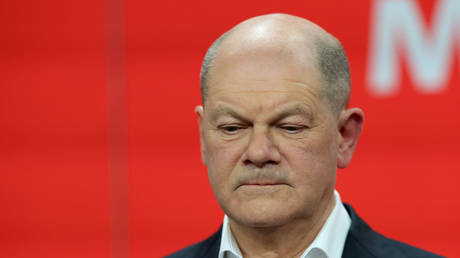Dankuni, Hooghly, February 23, 2025 – The second day of the Communist Party of India (Marxist) (CPI(M)) 27th West Bengal State Conference is in full swing at Dankuni in Hooghly district, with delegates deeply immersed in a robust discussion of the party’s draft political resolution. The four-day conference, which began on February 22, serves as a critical juncture for the CPI(M) to strategize for the upcoming West Bengal Assembly elections in March–April 2026 and address its recent electoral challenges, including a significant decline in influence in the state.
Today’s proceedings are centered on the draft resolution, which outlines the party’s strategic vision to reclaim its political relevance amid a polarized West Bengal landscape dominated by the ruling Trinamool Congress (TMC) and the Bharatiya Janata Party (BJP). The draft emphasizes strengthening the party’s independent political identity, countering the growing polarization, and mobilizing mass movements to address pressing issues such as unemployment, agrarian distress, and the erosion of workers’ rights. Delegates are debating key proposals, including intensifying grassroots campaigns, revitalizing rural support bases, and fostering alliances with other progressive forces to challenge the status quo.
Party leaders, including state secretary Md Salim and central committee coordinator Prakash Karat, have highlighted the urgency of addressing internal organizational weaknesses. Karat, in his opening address on Saturday, pointed to the CPI(M)’s failure to secure any seats in the 2019 and 2024 Lok Sabha elections and the 2021 Assembly polls, attributing this to a disconnect with rural voters and the younger generation. He stressed the need for a renewed focus on recruiting youth and reinvigorating local leadership to bridge this gap. Salim echoed these concerns, noting the party’s vote share has plummeted from 30.08% in 2011 to just 5.67% in the 2024 Lok Sabha polls, underscoring the monumental task ahead.
The draft discussion also tackles specific policy critiques, including opposition to the central government’s recent economic reforms, such as the Electricity Reform Bill and Citizen Security Code, which the party claims disproportionately harm workers, peasants, and marginalized communities. Delegates are advocating for a mass movement to protect tribal and indigenous rights, drawing inspiration from the party’s historical commitment to social justice, as seen in its 29th State Conference in 2020 and other regional gatherings.
Additionally, the resolution proposes enhancing the party’s media outreach, including leveraging social media and launching new publications to counter misinformation and connect with younger audiences. Reports from the conference indicate a lively debate on legal challenges faced by party activists, with some arguing that increased arrests of youth and student leaders reflect their active role in protests, while others see it as a hurdle to organizational growth.
The conference, set to conclude on February 25 with a public meeting, also features tributes to late leaders Sitaram Yechury and Buddhadeb Bhattacharjee, reinforcing the party’s ideological roots. Social media platforms are buzzing with reactions, with party supporters expressing hope for a revival, while critics question the CPI(M)’s ability to overcome decades of electoral decline in a state where it once held power for over three decades.
As discussions continue, the CPI(M) aims to finalize a comprehensive roadmap to rejuvenate its presence in West Bengal, setting the stage for its broader national strategy at the upcoming 24th Party Congress in Madurai, Tamil Nadu, in April 2025. The outcome of this conference could prove pivotal for the party’s future in one of India’s most politically significant states.










